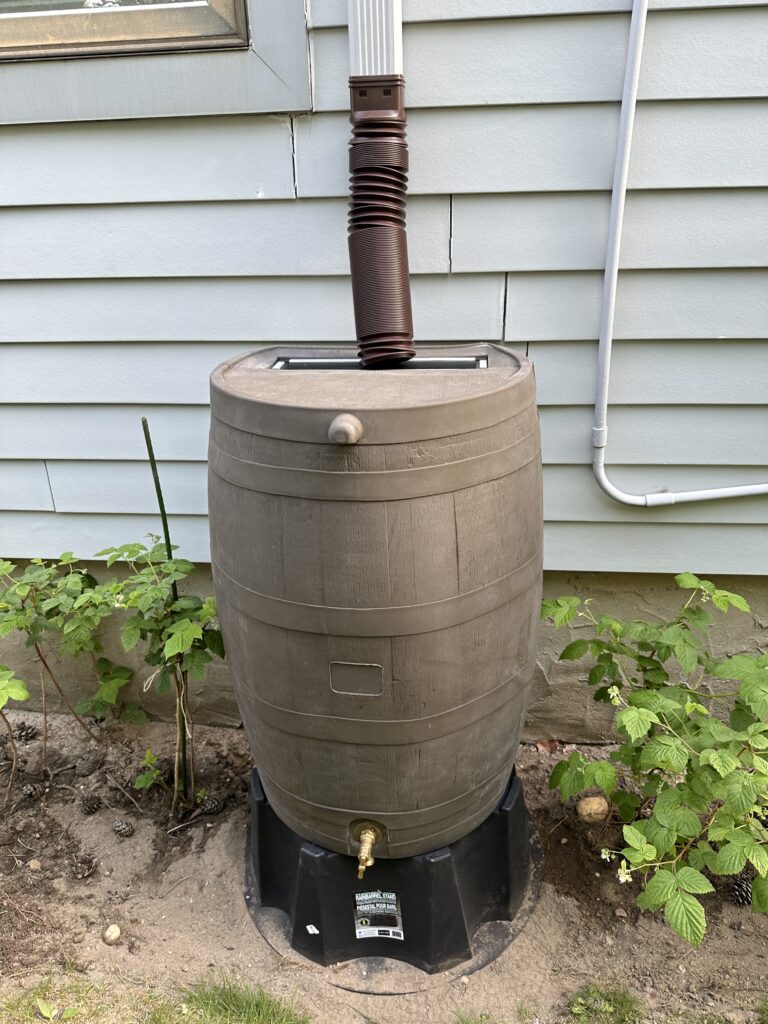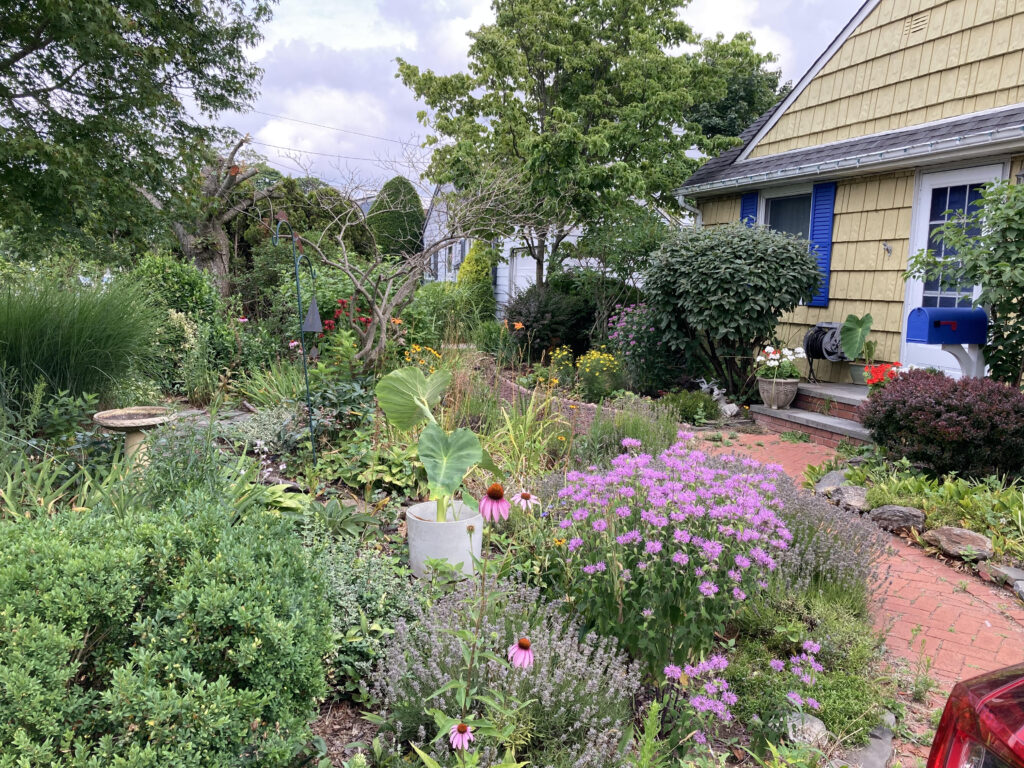The inaugural year of the Long Island (New York) Garden Rewards Program provided more than 200 homeowners with grants to help cover the cost and maintenance of stormwater runoff mitigation projects on their property. The Program is a partnership between the Long Island Regional Planning Council (LIRPC), New York State Department of Environmental Conservation (NYSDEC), Long Island Sound Study and NEIWPCC.
The program provides up to $500 to homeowners to offset the expense of installing green infrastructure on their properties including rain barrels, native plant gardens and rain gardens. A total of 231 grants were awarded.
“It is encouraging to see so many Long Island homeowners recognizing that they can make a small but significant contribution to combating excess nitrogen pollution created by stormwater runoff in their own backyards,” said John Cameron, LIRPC chairman. “The Garden Rewards Program was a tremendous success, and we are already looking forward to next year.”
Excess nitrogen runoff can cause toxic algal blooms that lead to low oxygen conditions, fish kills, degraded wetlands and marine habitats. Nitrogen also contaminates the groundwater, which is the sole source of Long Island’s drinking water supply.
“Long Islanders are taking action to improve the region’s water quality,” said Basil Seggos, NYSDEC commissioner. “The DEC looks forward to working with these critical partners to encourage more homeowners to participate in the program.”
“NEIWPCC is excited to be part of the Long Island Garden Rewards Program,” said Susan Sullivan, executive director at NEIWPCC. “Homeowners on Long Island are taking important steps to help reduce nitrogen pollution in their backyards.”

The program will begin accepting applications again on March 1, 2024. Eligible home projects include:
- Installing rain barrels, which reduce stormwater runoff by collecting and storing rainwater for homeowners to later use in their yards and gardens, also help conserve water consumption. Barrels must be a minimum of 50 gallons and are required to have mosquito netting or screening. Reimbursement of up to $125 for each barrel will be provided for purchase, up to $500 maximum.
- Planting native plants, which are heartier and more resilient to local climate conditions. Native plantings can reduce water usage, reduce fertilizer and pesticide usage, and promote biodiversity. Native plants help promote a healthy ecosystem and are more resistant to local weather.

- Installing rain gardens, which collect rainwater from roofs, driveways and other surfaces and allow that rain to soak into the ground. Rain gardens can filter stormwater before it reaches local waterways, mitigate flooding caused by pavement and enhance yards with low maintenance landscaping. To be eligible, a rain garden must be a minimum of 20 square feet, use native plants and be maintained for at least three years.